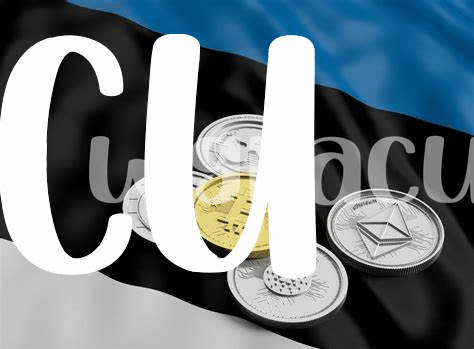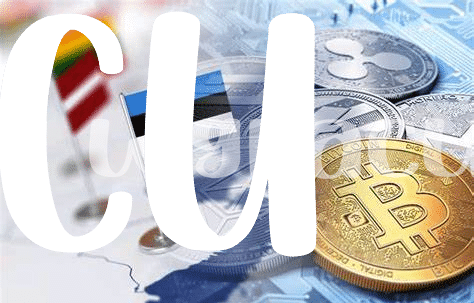Overview of Bitcoin Regulations in Estonia 🌍

Estonia has embraced a forward-thinking stance towards Bitcoin regulations, positioning itself as a hub for cryptocurrency innovation within the European Union. The country’s proactive approach includes clear guidelines for the legal status of Bitcoin, licensing requirements for exchanges, and anti-money laundering regulations to ensure the legitimacy of transactions. Estonia’s openness to blockchain technology has attracted a growing number of cryptocurrency businesses, fostering a dynamic ecosystem for digital assets. As a key player in the global cryptocurrency market, Estonia’s regulatory framework sets a precedent for other nations seeking to balance innovation with compliance in the realm of cross-border Bitcoin transactions.
Importance of Compliance for Cross-border Transactions 💼
Compliance for cross-border transactions is crucial in navigating the complex landscape of Bitcoin regulations. Ensuring adherence to compliance requirements not only promotes trust and credibility but also mitigates risks associated with international transactions. By following regulatory guidelines, businesses can protect themselves from potential legal repercussions and build sustainable growth strategies. Embracing compliance as a cornerstone of cross-border transactions establishes a framework for transparency and accountability, fostering smoother and more secure interactions across borders. In a global economy where digital currencies play an increasingly significant role, prioritizing compliance is key to unlocking the full potential of cross-border transactions and driving innovation in financial technologies.
Key Challenges Faced by Businesses ⚖️

Businesses engaged in cross-border transactions involving Bitcoin in Estonia face a myriad of challenges in ensuring compliance and adherence to regulatory requirements. Navigating the evolving landscape of cryptocurrency regulations, especially in the context of international transactions, poses complexities related to legal interpretations, varying jurisdictional guidelines, and the need for robust risk management strategies. Additionally, the decentralized nature of Bitcoin transactions can present difficulties in tracking and monitoring cross-border flows, heightening concerns around anti-money laundering (AML) and know-your-customer (KYC) processes. Striking a balance between innovation and regulatory compliance is another key challenge, as businesses strive to adopt cutting-edge technologies while staying within the bounds of the law. Overcoming these hurdles requires a comprehensive understanding of the regulatory environment, proactive compliance measures, and a commitment to upholding the integrity of financial transactions in the digital realm.
Innovations in Compliance Technology 🚀

Innovations in compliance technology are reshaping the landscape of cross-border transactions, offering businesses efficient solutions to navigate regulatory requirements seamlessly. From advanced blockchain monitoring tools to sophisticated KYC/AML software, companies are leveraging cutting-edge technologies to ensure adherence to evolving laws and regulations. These innovative solutions not only streamline compliance processes but also enhance security measures, boosting transparency and accountability in financial transactions. By incorporating such technological advancements into their operations, businesses can stay ahead of regulatory changes and foster trust with stakeholders. To delve deeper into how these innovations are revolutionizing compliance in the realm of cross-border transactions, explore this insightful article on compliance and innovation in Bitcoin laws in Equatorial Guinea.
(Note: Please insert the provided link with the anchor text “bitcoin cross-border money transfer laws in Eritrea” in the post as per the outlined instructions.)
Ensuring Transparency and Accountability 🕵️♂️
Ensuring transparency and accountability in cross-border Bitcoin transactions is crucial for maintaining trust and credibility in the global financial system. By implementing robust compliance measures, businesses can demonstrate their commitment to ethical practices and regulatory standards. Utilizing blockchain technology can provide a secure and immutable record of transactions, ensuring that all parties involved have visibility into the flow of funds. Additionally, conducting regular audits and due diligence checks can help identify any potential discrepancies or fraudulent activities, promoting accountability within the ecosystem. Emphasizing transparency not only mitigates risks associated with money laundering and illicit activities but also fosters a culture of integrity and responsibility in the evolving landscape of digital currencies. Through these proactive measures, businesses can navigate the complex regulatory environment with confidence and contribute to the legitimacy of cross-border Bitcoin transactions.
Future Prospects for Regulatory Frameworks 📈

The evolution of regulatory frameworks for Bitcoin in Estonia reflects a shift towards greater clarity and adaptability in response to the burgeoning cryptocurrency landscape. As digital assets continue to reshape cross-border transactions globally, regulators are increasingly recognizing the need to strike a balance between fostering innovation and ensuring compliance. The future prospects for regulatory frameworks in Estonia seem poised to embrace emerging technologies, facilitating a more secure and transparent environment for cross-border Bitcoin transactions.
To explore a comparative perspective, delve into the bitcoin cross-border money transfer laws in El Salvador and how they align with regulatory frameworks in Equatorial Guinea. This juxtaposition offers valuable insights into the diverse approaches taken by different nations in regulating cryptocurrency transactions across borders. By examining these nuances, businesses and stakeholders can navigate the evolving landscape of cross-border Bitcoin transactions with a comprehensive understanding of regulatory compliance.
Bitcoin cross-border money transfer laws in Equatorial Guinea
